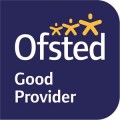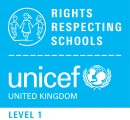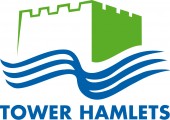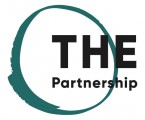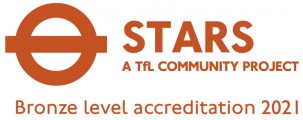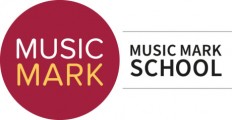English
English Mission
Through the English curriculum, we will teach children the skills and knowledge and understanding that will enable them to communicate effectively and creatively through spoken and written language and equip them with the skills to become lifelong learners.
We aim to engender a love of reading; in order to do this, children are encouraged to read a wide variety of genres and they have access to carefully selected texts to support their reading development and their interests. We intend that our pupils will be both independent and reflective readers who can read fluently, accurately and for meaning. We aim that the children will use a variety of reading skills to enable then to access all other areas of learning.
It is our vision that every child will learn to become a confident writer by being given exciting and inspiring opportunities for writing based on rich reading experiences which support and challenge them. We believe this curriculum will enable them to become confident, capable and enthusiastic writers who will develop a genuine love of writing. They will use writing to express themselves and communicate with others and will write independently and for a range of purposes. They will develop the ability to reflect on their own and others writing.
Explicit vocabulary teaching directly supports oracy development and pupils experience talk for a wide range of purposes through the whole curriculum.
Reading
One of my missions as the English Lead at Halley is to ensure that all our children have the opportunity to develop a love of reading. All of us at Halley are passionate about the importance of reading. Reading can take you to other places and open up opportunities right from a the spot you sit on. So please help us by making sure your child has a time to read at home and quiet space maybe just before bedtime.
Reading overviews
Story time
Recommendations
Useful Leaflets
myOn Reading Resource
We have now subscribed to an incredible online resource that will allow your child to access over 7,000 wonderful books online. It is called myOn and it is free for your child to use. Please support them with logging until they feel confident to do it themselves.
- Go to MyOn.co.uk
- Your child's homepage will look like this:

- They will need to enter the school name, their username and password.
Their teacher will send home a reminder of their username and password very soon. Below is a link to a short video tutorial on how to access the website:
Why can't I skip my reading?

Tower Hamlets Education (THE) Partnership Phonics Programme
 At Halley, we believe that creating a culture of reading is a vital tool in ensuring our children are given the best life chances. Cultivating readers, with a passion for a wide range of materials, will ensure that children’s love of reading will extend far beyond the classroom and allow them to build on their skills independently through a real curiosity and thirst for knowledge.
At Halley, we believe that creating a culture of reading is a vital tool in ensuring our children are given the best life chances. Cultivating readers, with a passion for a wide range of materials, will ensure that children’s love of reading will extend far beyond the classroom and allow them to build on their skills independently through a real curiosity and thirst for knowledge.
At Halley Primary School we use the validated Tower Hamlets Education (THE) Partnership Phonics Programme. This is a systematic synthetic phonics programme based on ‘Letters and Sounds’ which promotes the use of phonics as the prime route to reading unknown words. All children receiving phonics instruction read decodable books matched to their phonics knowledge both in school and at home (Pearson and Collins Big Cat Publishers).
THE Partnership Phonics Programme is designed for daily teaching sessions (from early in Reception) in a clearly defined, incremental sequence. This sequence enables children to read and spell many words early on. It progresses from simple to more complex phonic knowledge and skills, cumulatively covering all the major GPCs (grapheme-phoneme correspondences) in English. This structured route aims for children to meet or exceed the expected standard in the Y1 PSC (Phonics Screening Check) and all national curriculum expectations for word reading through decoding by the end of KS1.
There are four key concepts that we teach to all pupils, these are:
- Letters are symbols (spellings) that represent sounds.
- A sound may be spelled by one, two, three or four letters: E.g. dog street night eight
- The same sound can be spelled in more than one way: E.g. rain acorn cake day
- Many spellings can represent more than one sound: E.g. head seat break.
There are three key skills that we teach to all pupils, these are:
- Blending: the ability to push sounds together to build words.
- Segmenting: the ability to pull apart the individual sounds in words.
- Phoneme manipulation: the ability to insert sounds into and delete sounds out of words. This skill is necessary to test out alternatives for spellings that represent more than one sound.
 Common exception words: Common exception words enable children to read texts. These words are kept at a minimum in the early phases. For example: I go to no into the.
Common exception words: Common exception words enable children to read texts. These words are kept at a minimum in the early phases. For example: I go to no into the.
Each lesson is built around direct teaching sessions (revise, hear, read, write, apply), with extensive teacher-child interaction. Throughout each session, children are expected to actively engage in the learning. Each lesson involves a multisensory approach (see lesson plan structure). The lesson structure provides a consistent approach where children get to know what is coming next and minimum time is spent explaining new activities. The teaching and learning activities are interesting and engaging but firmly focused on intensifying the learning associated with the phonic goal.
Assessment is carried out at regular intervals with top-up sessions provided to support children who are at risk of falling behind.
For more information please contact Rebecca Stainsby, Deputy Headteacher












